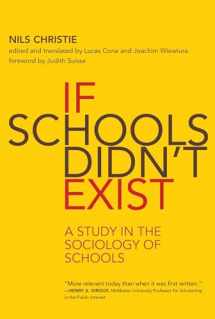
If Schools Didn't Exist: A Study in the Sociology of Schools
Book details
Summary
Description
A classic in the philosophy of education, considering the fundamental purpose and function of schools, translated into English for the first time
This classic 1971 work on the fundamental purpose and function of schools belongs on the same shelf as other landmark works of the era, including Ivan Illich's Deschooling Society, Paulo Freire's Pedagogy of the Oppressed, and John Holt's How Children Fail. Nils Christie's If School Didn't Exist, translated into English for the first time, departs from these works by not considering schooling (and deschooling) as much as schools and their specific community and social contexts. Christie argues that schools should be proving grounds for how to live together in society rather than assembly lines producing future citizens and employees.
Christie presents three examples of schools in different settings-a French village school that became the bedrock of its community; federal government-run schools for Native Americans that facilitated the experience of inferiority; and a British secondary school that reinforced class stratification. He considers the school's function as a storage space (for an unproductive segment of society), as a means for differentiation (based on merit), and as distributor of knowledge. He introduces the idea of the school-society, a self-governing body of students, teachers, parents, and community; and he offers a vision of a society based on normalizing the needs and values of local communities.


We would LOVE it if you could help us and other readers by reviewing the book
Book review



